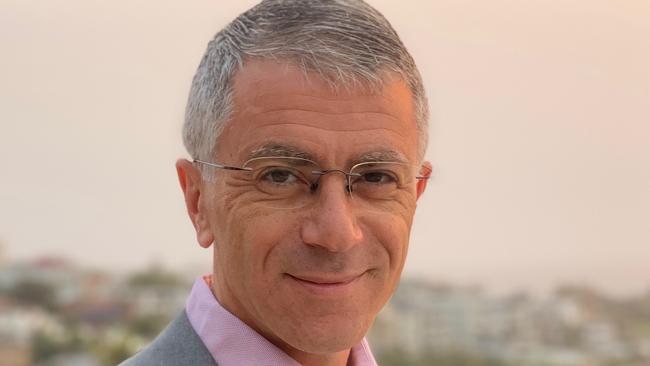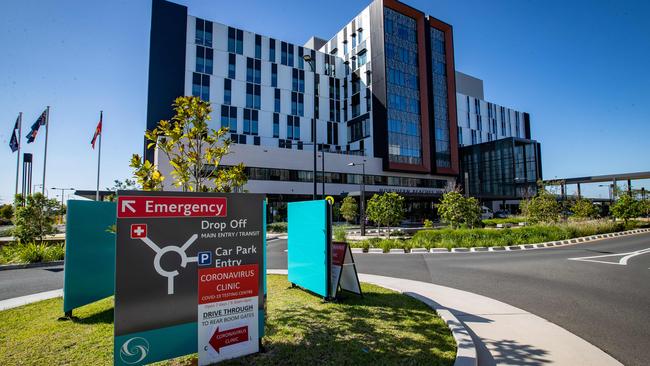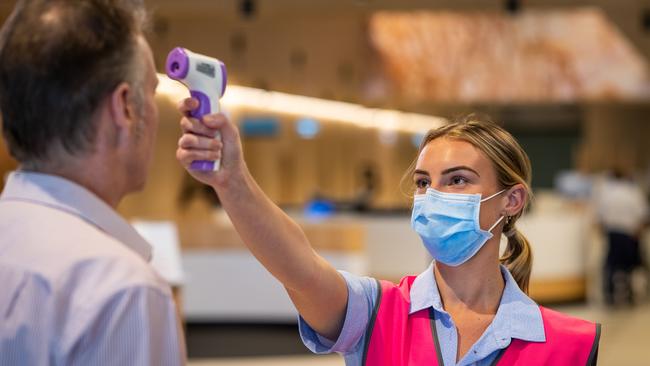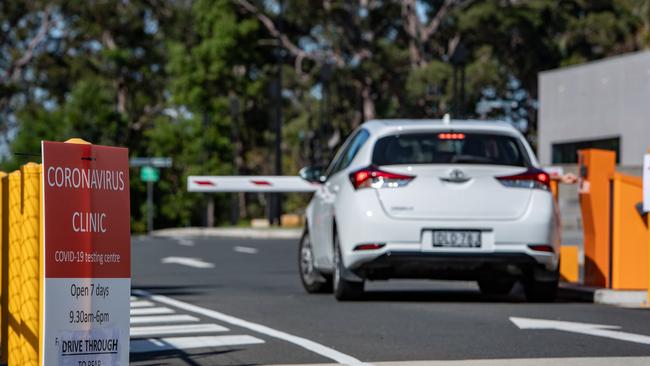Northern Beaches Hospital leads the way with COVID-19 trial into immunity
COVID-19 patients from the northern beaches are leading the way in helping researchers find a vaccine for the virus.

Manly
Don't miss out on the headlines from Manly. Followed categories will be added to My News.
- Painful mosquito virus: ‘It was like standing on glass’
- Northern Beaches: 3000 COVID-19 job losses feared
Recovered COVID-19 victims on the northern beaches are at the forefront of a trial to find a vaccine for the virus.
So far nearly half of the 73 participants in the University of NSW led trial come from the northern beaches, with another 30 people from the peninsula indicating they are eager to sign up.
Dr Michael Mina, who is the lead for the Collection of Coronavirus COVID-19 Outbreak Samples in NSW (COSIN) trial at Northern Beaches Hospital, said antibodies in the blood of participants will be analysed to see how long they remain protected from the virus.
They will also use the blood to find out why kids don’t suffer as severely.

He said the immunological study being run by the Kirby Institute could also help inform vaccine development.
“The northern beaches is playing such a lead role in this trial,” Dr Mina said.
“The sense of community is lovely, people want to do their bit.”
Dr Mina said the northern beaches was one of the worst hit areas for COVID-19, with 157 recorded cases so far.
He said the hospital had recruited a researcher to co-ordinate the trials and she was busy contacting the 80 plus people who tested positive at the hospital’s COVID-19 clinic to see if they will participate.

He said those who tested positive onsite ranged from teenagers to those in their 70s.
Meanwhile, two other coronavirus trials at the Frenchs Forest hospital are currently on hold, including one involving the controversial drug hydroxychloroquine which US President Donald Trump says he is taking to prevent the disease.

The AustralaSian Covid-19 trial (ASCOT) trial being led by researchers at Royal Melbourne Hospital in Australia involves the study of two existing drugs for treating coronavirus, including HIV medication lopinavir/ritonavir, and malaria drug hydroxychloroquine.
The trial aims to find out whether those drugs can stop the virus progressing to the point that patients require a ventilator.

However, Dr Mina said the trial is on hold while the drug hydroxychloroquine is being reviewed following concerns those receiving it have been dying at higher rates and experiencing more heart-related complications than other virus patients.
A third trial being rolled out globally is called REMAP-CAP, which stands for Randomised, Embedded, Multi-factorial, Adaptive Platform Trial for Community-Acquired Pneumonia.
It uses an innovative adaptive trial design to evaluate a number of treatment options simultaneously and efficiently.
Dr Mina said the REMAP-CAP trial will begin if and when they have anymore COVID-19 patients.
“We don’t know what will happen over the next few weeks following the relaxation of restrictions,” he said.
“We are still on high alert and people are getting tested every day.”

